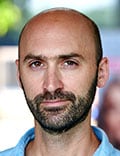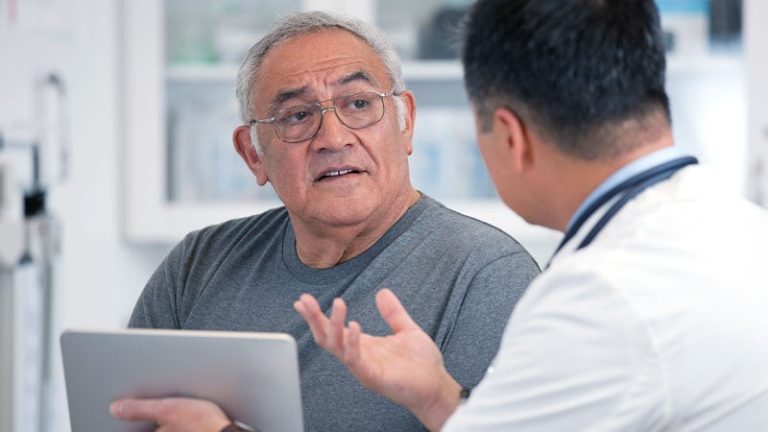People are living longer in Europe. The continent increased life expectancy by about 12 years between 1960 and 2022. And this trend appears to be continuing, even though progress has been slowed by the COVID-19 pandemic.
Not only are Europeans living longer, but their birth rates are falling. This means that Europe's population aged 75-84 is projected to grow by 56.1% by 2050, while the population under 55 is projected to decline by 13.5%.
This means that there is an urgent need for a change in the way we think about age, even among healthcare professionals.
Healthcare is not exempt from ageist attitudes.
A systematic review published in the journal PLOS ONE in 2020 found that age is a determining factor in determining who receives certain medical procedures and treatments. For example, a study of 9,105 hospitalized patients found that health care providers were significantly more likely to withhold life-sustaining treatment from older patients. Another study found evidence that older people are being excluded from clinical trials, even those for diseases that develop later in life, such as Parkinson's disease.
“There are different levels of age discrimination in healthcare,” explains Dr Hannah Swift, reader in social and organizational psychology at the University of Kent in Kent, UK.

She explained that age discrimination is embedded in laws, regulations and institutional practices. This has become especially evident during the pandemic, when medical professionals have had to decide who to treat, perhaps using age as a proxy for making some of these decisions, she said. .
“When we categorize people, we may be using stereotypes, assumptions, and expectations about age and age groups to make decisions, and that's where mistakes can occur.”
She said ageist attitudes can be characterized by using condescending language or providing unnecessary assistance to older people based on assumptions about their cognitive and physical abilities. , he added, is also evident on an interpersonal level.
“Older age is often incorrectly associated with decreased health and activity levels,” said Dr. Itai Mannheim, a visiting postdoctoral researcher on aging and ageism at the Open University of the Netherlands. “However, older adults are a very diverse group and vary widely in many aspects, including health status. This stereotype assumes frailty or memory problems simply based on age, and healthcare professionals It's important to realize that getting older doesn't necessarily mean you're going to get sick.

Mannheim's research found that medical professionals often get in the way of older people's access to technology-based treatments due to negative attitudes toward age. “So, really, the barrier to using these technologies is that healthcare professionals don't think they can use that technology because someone looks older or they're older, or they don't offer it. It could be that they don't even do it,” he said.
influence
Discrimination affects the physical, mental and social well-being of victims. This also includes attitudes towards age.
A PLOS ONE review of research on the global prevalence of ageism found that experienced or self-perceived ageism is associated with significantly worse health outcomes in every country studied. The same research team calculated that an estimated 6.3 million cases of depression worldwide are linked to ageism.
Other studies have found that exposure to negative age-related stereotypes not only increases the risk of cardiovascular events, but also influences the willingness to adopt a healthy lifestyle.
What can you do?
“Health care professionals frequently come into contact with the most vulnerable older people, which can reinforce negative stereotypes that older people are vulnerable or sick,” Swift said. said. “However, not all older adults fit these stereotypes. Many are able to live well and independently. Perhaps medical education has the potential to help you understand just the moments when an older person needs help.” Instead of focusing on the elderly, it should include reminders of the diverse experiences of older people.”
Research shows that although progress has been made in geriatric training and geriatric care by medical educational institutions, at all levels of geriatric care, including hospital administrators, physicians, nurses, personal caregivers, and allied public health nurses, It shows that there is still a need for improved education and training. Occupation.

“Typically, what medical professionals learn about aging tends to focus on the biological aspects,” Mannheim says. “But they may not fully understand what it means to get older and how to interact with older adults, especially when it comes to technology. My experience working with medical professionals So even just one workshop on ageism can have a huge impact, so it's important to raise awareness about ageism so participants can say things like, “Wow, I never thought of that before.'' , often with a surprising reaction.”
Training health care workers to better understand the aging process could help reduce their own biases and better prepare them to meet the needs of older patients, Mannheim said. He said there is.
“Old age cannot devalue the lives of older people. It is important for all of us, especially governments, to recognize our responsibility to protect and promote the human rights of individuals of all ages. The strategies we witnessed during the pandemic will be repeated in the future,” said Nena, Barcelona-based Human Rights Manager at AGE Platform Europe, the EU network of older people and organizations for older people. Dr. Georganzi said. people.

